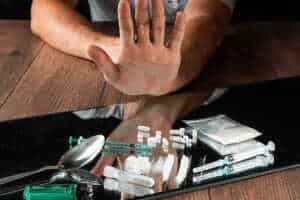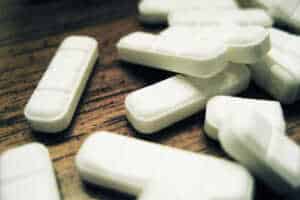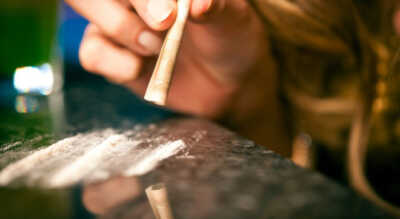Age-Specific Treatment Options
Is My Child Addicted?
Is My Child Addicted?
Adolescence and young adulthood is a time of growth, exploration and self-discovery. Many adolescents experiment with drinking and recreational drug use in their mid and late teens. If your child has come home from a high school party slightly intoxicated, or if you walk into their bedroom one day to find it reeking of pot, know you are not alone! The majority of parents watch their children stumble through this phase of their lives, though in most cases, your child will come out the other side unscathed and go on to be a productive member of society. For many teenagers, social drinking and recreational drug use is simply part of an experimental phase. For some, however, what began as experimentation eventually transitions into an addictive disorder. Addiction is a chronic medical condition concerning the compulsive, uncontrollable use of drugs and alcohol. Those who become addicted to a chemical substance have a difficult time regulating use on their own, and many require some degree of professional addiction treatment in order to get their lives back on track. At Guardian IOP we offer an individualized and effective outpatient treatment program geared towards helping people of all ages and walks of life overcome addiction. If your child has developed a substance use disorder, there is help available. Contact us today to learn more.
How Can You Tell if Your Child is Experiencing Drug & Alcohol Addiction?
How can you tell if your child is experiencing drug and alcohol addiction or if they’re simply going through a particularly hormonal stage of their lives? There are several ways to successfully differentiate between substance use and growing pains. At Guardian IOP we are available to help you identify a potential substance use disorder and get your child the help they need to heal. Contact us today to begin.
Physical Signs of Addiction
One of the best ways to tell if your child has been struggling with a drug or alcohol addiction is by keeping an eye out for the physical signs. When it comes to adolescents, teenagers and young adults, emotional and behavioral warning signs can be difficult to accurately identify. During this stage of life, mood swings, social changes and emotional outbursts are not uncommon. This is why looking for the physical signs of addiction might provide you with a more accurate indication of whether or not a substance use disorder is present. If you are still unsure about which physical signs to look for, contact Guardian IOP today.
We Are Here For You
Let Us Help You Heal
Our Drug & Alcohol addiction treatment experience is second to none.
Learn how we can help by speaking with one of our Treatment Advisors today.
Physical Signs of Alcohol Misuse
Not every teenager or young adult who experiments with alcohol will develop an alcohol use disorder. If your child has been struggling with a diagnosable alcohol use disorder, they might exhibit the following physical symptoms:
- Uncontrollable shaking or trembling/shaky hands.
- Flushing of the face/redness in the cheeks and nose.
- Regularly smelling like alcohol/smelling alcohol on the breath.
- Confusion and disorientation.
- A lack of coordination.
- Gastrointestinal issues like nausea and vomiting.
- Cold and clammy skin/low body temperature.
- Noticeable weight loss or weight gain.
- Red, bloodshot or watery eyes.
Physical Signs of Opioid Misuse
Opioid use disorders can involve prescription painkillers like oxycodone, hydrocodone or codeine, or illegal opioids like heroin. Rates of fentanyl abuse have also been on the rise (fentanyl is a synthetic opioid known for being between 80 and 100 times more potent than morphine). If your child has been struggling with an opioid use disorder, they might exhibit the following physical symptoms:
- Appearing tired and drowsy throughout the day.
- Sleeping strange hours.
- Reduced appetite which can lead to noticeable weight loss.
- A lack of attention paid to personal appearance/personal hygiene.
- The presence of flu-like symptoms (runny nose, watery eyes, upset stomach, profuse sweating and body aches).
- Nausea, vomiting and constipation.
- Small pupils.
- Slurred speech/compromise cognitive functioning.
Physical Signs of Benzodiazepine Misuse
Benzodiazepines include medications like Xanax, Klonopin and Valium, which are commonly prescribed for the treatment of moderate or severe anxiety or sleep disorders. If your child has been struggling with a benzodiazepine use disorder, they might exhibit the following physical symptoms:
- Excessive drowsiness/changes to sleeping patterns.
- Unsteadiness/inability to stand up straight.
- Persistent headaches.
- Dizziness and light-headedness which can lead to fainting.
- Muscle weakness.
Our Drug & Alcohol Treatment Services Include
Physical Signs of Stimulant Misuse
Stimulant drugs include prescription stimulants like Adderall and Ritalin and illegal stimulants like cocaine and methamphetamine. It is not uncommon for teenagers and young adults to use prescription stimulants as study aids. Unfortunately, because these medications are so habit-forming, students who start with occasional use often develop physical dependencies over time. If your child has been struggling with a stimulant use disorder, they might exhibit the following physical symptoms:
- Increased physical activity.
- Restless/an inability to sit still.
- Trouble falling asleep at night and other changes to sleeping patterns.
- Loss of appetite which can lead to significant weight loss.
- Appearing nervous or jittery.
- Elevated heart rate and increased blood pressure.

Emotional & Behavioral Signs of Addiction
As it stands, adolescents, teenagers and young adults go through a range of emotional and behavioral changes as they grow and mature. However, there is a major distinction between growing pains and substance dependency. If you believe your child might be struggling with drug or alcohol addiction, keep an eye out for the following emotional and behavioral warning signs:
- Your child has been spending more time isolated and alone, and might be locking their bedroom door or avoiding old friends.
- You regularly catch your child in a lie.
- Your child seems to have experienced a sudden decline in motivation and energy levels.
- Your child has recently experienced significant changes to sleeping and/or eating patterns, and might appear tired or disoriented throughout the day, sleep strange hours or experience weight loss or weight gain.
- Your child experiences a sudden decline in grades and shows up late to school or accrues more absences than normal.
- Your child stops paying attention to their personal appearance and personal hygiene, and might appear disheveled and wear the same clothing for several days in a row.
- Your child regularly steals money from your purse or asks for money more often than normal.
- You have noticed medication missing from the medicine cabinet.
- Your child acts defensive and experiences angry outbursts, especially when substance use is brought up in conversation.
If you have noticed a combination of physical, emotional and behavioral warning signs, it is a good idea to reach out for guidance on which steps to take next. At Guardian IOP we have ample experience helping young adults who have been struggling with addiction. Many of our staff members have helped their own loved ones through the recovery process, allowing them to come from a place of experience, understanding and compassion. Contact us today to learn more about which steps to take.
Paraphernalia Can Be a Sign of Addiction
If you believe your child has been struggling with a substance use disorder, it is a good idea to be on the lookout for certain types of paraphernalia. If paraphernalia is being used you might find it stashed away in personal belongings or hidden throughout your child’s bedroom; in bedside table drawers, bathroom cabinets or in the back of closets. If you do find a piece of drug or alcohol paraphernalia, avoid confronting your child right away. Instead, reach out to a professional for advice on what steps to take next.
Ready To Begin Your Drug & Alcohol Treatment?
We Offer A Safe & Effective Program
Don’t let Drug & Alcohol addiction control your life.
Call us today and let’s get you started on the path to a better you.
Alcohol Use Disorder Paraphernalia
If your child has been struggling with an alcohol use disorder, you might find the following paraphernalia:
- Booze bottles hidden in personal belongings or throughout the bedroom.
- Alcohol stashed in water bottles or soda bottles.
- Brown paper bags stashed throughout personal belongings.

Opioid Use Disorder Paraphernalia
If your child has been struggling with an opioid use disorder, you might find the following paraphernalia:
- Unfamiliar pills stashed in random places (identify pills using this prescription painkiller identifier).
- Pill residue on flat surfaces, razor blades or credit cards with powdery pill residue on the sides (opioid painkillers can be crushed and snorted or used intravenously).
- Needles or syringes, burnt spoons, torn up/stained cotton balls, homemade tourniquets (belts, shoelaces, etc.) or small plastic bags/pieces of saran wrap.

Benzodiazepine Use Disorder Paraphernalia
If your child has been struggling with a benzodiazepine use disorder, you might find the following paraphernalia:
- Multiple prescription pill bottles.
- Random pills stashed throughout personal belongings.
- Pill residue on flat surfaces.

Stimulant Use Disorder Paraphernalia
If your child has been struggling with a stimulant use disorder, you might find the following paraphernalia:
- Small glass pipes, used to smoke methamphetamine or crack cocaine.
- Burnt pieces of tin foil.
- Excessive cigarette lighters stashed in personal belongings.
- Small plastic bags containing white powder or powder residue.
- Rolled up dollar bills or cut up straws (used to ingest cocaine nasally).

How to Help Your Child Overcome Addiction
If you believe your child has been struggling with an addictive disorder, what steps can you take to help? At Guardian IOP we encourage you to take the following steps:
- Educate Yourself – If you believe your child might be struggling with a substance use disorder, we recommend educating yourself on addiction before confronting your child. When you have a better grasp of how addiction develops and how it can be effectively treated, you will be better equipped to come from a place of compassion and understanding.
- Have a Heart-to-Heart with Your Child – Once you have educated yourself of addiction we recommend sitting down with your child and having an open and honest conversation. Make sure your child is completely sober at the time. Because denial and defensiveness often go hand-in-hand with addiction, there is a good chance the conversation will be cut short or your child will be less than receptive. Even if your child doesn’t react the way you had hoped, an important seed has been planted. When having this conversation we recommend asking open-ended questions and avoiding accusations. Avoid saying something like, “Why are you using drugs? We raised you better than that.” Instead, try saying something like, “I have noticed your grades have been lower than they normally are. I was hoping we could have a conversation about why.” Draw from personal experiences with drug use; doing so will make you more relatable and will make your child feel safer about opening up. Be sure they know no matter what they share, they are not going to be “punished.”
- Seek Support – Watching a child struggle with addiction is extremely difficult, and it is a good idea to reach out for extra support and guidance during this difficult time. We recommend attending support groups designed for the loved ones of addicts and alcoholics, like Al-Anon. We also recommend seeking guidance from an addiction specialist or an individual therapist with a personal background in adolescent/young adult addiction recovery.
- Present Potential Treatment Options – If your child seems receptive to seeking help, we recommend looking into potential treatment options. First of all, it is important to know which level of care is the most appropriate for your child. At Guardian IOP we offer a flexible and effective outpatient treatment program which is ideal for students who are enrolled in school full or part-time. We offer an IOP program specifically for younger adults, which provides intensive therapeutic care while tending to the unique needs of young adults. If we believe your child might benefit more from a higher level of care we are happy to point you in the right direction.
- Stage an Intervention if Necessary – If your child refuses treatment and is struggling with a severe and potentially dangerous substance use disorder, staging a professional intervention might be a good idea. As part of the Guardian Recovery Network we work directly with several professional interventionists across the country who we are happy to put you in contact with.
Begin Healing Now!
Have A Call With One Of Our Treatment Advisors
Don’t Suffer Any Longer
Contact Us Today to Learn More
Younger people experience addiction differently than those ages 40 and up. When substances are used to escape from responsibilities, emotions and other stressors, it leads younger adults on a path toward low self-worth and poor influences from a negative peer group. During young adulthood, many experience “failure to launch” syndrome, a term that describes the difficulty young adults face when they fail to smoothly transition into the next stage of life, which involves much more independence and responsibility. When substance abuse and its negative consequences are added to the mix, it can further stunt a young adult’s ability to take the reins and make a successful transition into adulthood. Additionally, younger adults need help planning for their life after treatment, which includes not only treatment, but getting help putting together a resume and finding a new job, or continuing their education. At Guardian IOP we are available to help your child overcome addiction and go on to lead the happy and fulfilling life they deserve. Contact us today to get started.
Get Started Now
Give us a call 24/7
(888) 693-1894


Reviewed for accuracy by:
Anna Marie Barrett LCSW, CYT
Anna earned her Masters of Social Work at Barry University in Miami, FL in 2017 and completed her internship in co-occurring disorders. Anna has a Bachelors of Art in Religious Studies from Naropa University and is a certified yoga and meditation instructor. Anna has received specialized training in somatic counseling with an emphasis on body-centered psychotherapy.




















